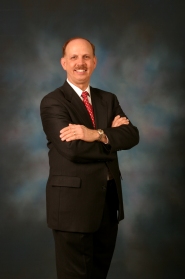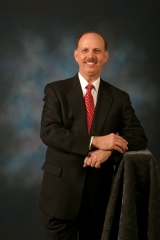By George F. Indest III, J.D., M.P.A., LL.M., Board Certified by The Florida Bar in Health Law
 As you are no doubt aware now, Florida has an active prescription drug monitoring program (PDMP). It is called the “Electronic-Florida Online Reporting of Controlled Substances Evaluation” or “E-FORCSE.” More often it is referred to simply as the “prescription drug database” by Florida physicians.
As you are no doubt aware now, Florida has an active prescription drug monitoring program (PDMP). It is called the “Electronic-Florida Online Reporting of Controlled Substances Evaluation” or “E-FORCSE.” More often it is referred to simply as the “prescription drug database” by Florida physicians.
The Florida Legislature adopted the E-FORCSE system in Florida by Section 893.055, Florida Statutes.
Section 893.055(7)(b), Florida Statutes, States Access to Program’s Database is Limited to Program Manager.
A pharmacy, prescriber, or dispenser shall have access to information in the prescription drug monitoring program’s database which relates to a patient of that pharmacy, prescriber, or dispenser in a manner established by the department as needed for the purpose of reviewing the patient’s controlled substance prescription history. Other access to the program’s database shall be limited to the program’s manager and to the designated program and support staff, who may act only at the direction of the program manager or, in the absence of the program manager, as authorized. Access by the program manager or such designated staff is for prescription drug program management only or for management of the program’s database and its system in support of the requirements of this section and in furtherance of the prescription drug monitoring program. Confidential and exempt information in the database shall be released only as provided in paragraph (c) and s. 893.0551. . . .
Data from E-FORCSE Not Intended to be Used to Bring Disciplinary Action Against Health Care Practitioners.
Most notably, it was not the intent of the Legislature for any state or federal agency to use the data from the E-FORCSE system primarily as evidence for the purpose of taking licensure or disciplinary action against physicians, dentists, pharmacists or other licensed health professionals.
Unfortunately, we have seen cases where, contrary to the Legislature’s intent, data from E-FORCSE has been recited in a case against a licensed health professional as an example of “substandard performance,” “falling below the standard of care,” or professional “negligence.” Additionally, we have been informed of the alleged use of the E-FORCSE system by state and federal law enforcement authorities in criminal investigations and prosecutions of licensed health professionals. However, the exact wording of Sections 893.055 and 893.0551, Florida Statutes, should be carefully analyzed in determining under what conditions access and use of the information are authorized.
Defending Against E-FORCSE Data’s Being Used Against a Health Care Practitioner.
If you are a physician, dentist or pharmacist, and data from E-FORCSE is used in or discussed in any complaint investigation, license investigation, Drug Enforcement Administration (DEA) investigation, criminal investigation, administrative complaint, charge sheet or indictment, you should ask your attorney to research the advisability of filing a motion to strike it. In addition, your attorney should also consider filing a motion in limine, before any major hearing or trial, to exclude all use or mention of the data and E-FORCSE system.
In addition, the attorney for the licensed health professional may explore the possibility of moving to exclude any and all information and evidence derived from the unauthorized use of the E-FORCSE databank under the “fruit of the poisonous tree” doctrine. To date, we have not seen any cases where this has been done.
Again the exact language of Sections 893.055 and 893.0551, Florida Statutes, should be consulted to determine whether access and use have been properly authorized.
Information on Florida’s Prescription Drug Monitoring Program from the Florida Department of Health.
The information below is taken from an informational pamphlet distributed by the Florida Department of Health (DOH) called “E-FORCSE; Florida’s Prescription Drug Monitoring Program.” It is available online, at http://www.e-forcse.com.
Florida’s Prescription Drug Monitoring Program Facts.
E-FORCSE will take in controlled substance dispensing data from pharmacies and health care practitioners, and will make the information available to all health care practitioners who can then use the database to guide their decisions when prescribing and dispensing certain highly-abused prescription drugs. With this information, health care practitioners may be able to identify patients who are “doctor shopping”—obtaining multiple prescriptions for the same controlled substance from multiple health care practitioners. Doctor shopping is a felony in Florida.
Who is Required to Report Controlled Substance Dispensing Information to E-FORCSE?
Any health care practitioner who has dispensed a controlled substance in schedule II, III and IV, as defined in section 893.03, Florida Statutes-like OxyContin, Percocet, Vicodine, etc., will be required to report to the database. This includes pharmacies licensed under chapter 465, Florida Statutes, (including mail order and Internet pharmacies that dispense controlled substances into Florida) and health care practitioners licensed under chapters 458, 459, 461, 462, 465, or 466, Florida Statutes.
Who is Not Required to Report Controlled Substance Dispensing Information to E-FORCSE?
A health care practitioner who:
– Administers a controlled substance directly to a patient if the amount is adequate to treat the patient during that particular treatment session;
– Administers a controlled substance to a patient or resident receiving care as a patient, at a hospital, nursing home, ambulatory surgical center, hospice or intermediate care facility for the developmentally disabled;
– Administers or dispenses a controlled substance in the health care system of the Florida Department of Corrections;
– Administers a controlled substance in the emergency room of a licensed hospital;
– Administers or dispenses a controlled substance to a patient under the age of 16; and
– Dispenses a one-time, 72-hour re-supply of a controlled substance.
How Can E-FORCSE Help Improve a Patient’s Standard of Care?
– It allows the health care practitioners to choose and prescribe controlled substances that will not negatively interact with medicines prescribed by other health care practitioners.
– Pharmacists can determine for their patients if their health care practitioners have prescribed controlled substances that might negatively interact when used together.
– Health care practitioners can determine if their patient has had multiple prescriptions for the same drugs from multiple health care practitioners. This identifies those patients potentially engaged in the crime of doctor shopping. When health care practitioners intervene, they can help their patients find treatment.
How Can E-FORCSE Help Improve the Public Health of Florida?
Health care practitioners can identify a potentially illegal diversion pattern for drugs when they request and receive a Patient Activity Report (PAR). A PAR can alert health care practitioners to doctor shopping. In addition, this information can assist law enforcement, medical regulatory boards and the Attorney General’s Medicaid Fraud Control Unit (MFCU) with active investigations into criminal activity regarding controlled prescription drugs.
Who Has Access to the Information Stored in E-FORCSE?
A health care practitioner who is subject to licensure or regulation by the DOH under chapter 458, chapter 459, chapter 461, chapter 462, chapter 464, chapter 465, or chapter 466, Florida Statutes, will have direct access to their specific patient’s information. Other direct access to information will be limited to the E-FORCSE program manager and designated staff for the purpose of program management.
Indirect access may be requested by the following organizations upon being verified and authenticated by E-FORCSE staff.
– DOH or appropriate health care regulatory boards who are involved in a specific investigation involving a designated individual for one or more prescribed controlled substances;
– The Attorney General (AG) for Medicaid fraud cases involving prescribed controlled substances; and
– A law enforcement agency during active investigations regarding potential criminal activity, fraud or theft of prescribed controlled substances.
Are Health Care Practitioners Required to Access E-FORCSE Before Prescribing a Controlled Substance?
Health care practitioners will not be required to access E-FORCSE before prescribing a controlled substance. It will be voluntary; however, physicians are encouraged to use it as a tool to improve patient care.
Is E-FORCSE Compliant with the Federal Health Insurance Portability and Accountability Act (HIPAA)?
Yes, in addition to meeting the federal HIPAA requirements, E-FORCSE will meet all required DOH security requirements.
What is the Penalty for Disclosure of Confidential Information in the E-FORCSE Database?
A health care practitioner or other individual who has access to the information in the E-FORCSE database who discloses confidential information will be committing a third-degree felony.
Contact Health Law Attorneys Experienced with Investigations of Health Professionals and Providers.
The attorneys of The Health Law Firm provide legal representation to physicians, nurses, nurse practitioners, CRNAs, pain management doctors, dentists, pharmacists, psychologists and other health providers in Department of Health (DOH) investigations, Drug Enforcement Administration (DEA) investigations, FBI investigations, Medicare investigations, Medicaid investigations and other types of investigations of health professionals and providers.
To contact The Health Law Firm, please call (407) 331-6620 and visit our website at www.TheHealthLawFirm.com.
Comments?
As a health care practitioner, do you use E-FORCSE? Why or why not? Please leave any thoughtful comments below.
About the Author: George F. Indest III, J.D., M.P.A., LL.M., is Board Certified by The Florida Bar in Health Law. He is the President and Managing Partner of The Health Law Firm, which has a national practice. Its main office is in the Orlando, Florida area. www.TheHealthLawFirm.com The Health Law Firm, 1101 Douglas Ave., Altamonte Springs, FL 32714, Phone: (407) 331-6620.
KeyWords: prescription drug monitoring program, PDMP, Florida prescription drug monitoring program, Electronic-Florida Online Reporting Controlled Substance Evaluation, E-FORCSE, E-FORCSE data, prescription database, physician, doctor, pharmacist, dentist, health care professional, health care provider, health care practitioner, Florida Legislature, prescriber, cases against licensed health care professionals, substandard performance, falling below the standard of care, professional negligence, criminal investigation, criminal investigation of a physician, prosecution of health care professional, prosecution of physician, compliant investigation, license investigation, Drug Enforcement Administration, DEA, DEA investigation, administrative complain, charge sheet or indictment, defense attorney, defense lawyer, Florida defense attorney, Florida defense lawyer, Florida Department of Health, DOH, doctor shopping, controlled substance, Attorney General, AG, Medicaid Fraud Control Unit (MFCU), dispensing controlled substances, reporting to E-FORCSE, who can access E-FORCSE, Health Insurance Portability and Accountability Act, HIPAA, E-FORCSE HIPAA compliant, health law firm, The Health Law Firm
“The Health Law Firm” is a registered fictitious business name of George F. Indest III, P.A. – The Health Law Firm, a Florida professional service corporation, since 1999.
Copyright © 1996-2015 The Health Law Firm. All rights reserved.
 By George F. Indest III, J.D., M.P.A., LL.M., Board Certified by The Florida Bar in Health Law
By George F. Indest III, J.D., M.P.A., LL.M., Board Certified by The Florida Bar in Health Law By George F. Indest III, J.D., M.P.A., LL.M., Board Certified by The Florida Bar in Health Law
By George F. Indest III, J.D., M.P.A., LL.M., Board Certified by The Florida Bar in Health Law By George F. Indest III, J.D., M.P.A., LL.M., Board Certified by The Florida Bar in Health Law
By George F. Indest III, J.D., M.P.A., LL.M., Board Certified by The Florida Bar in Health Law





